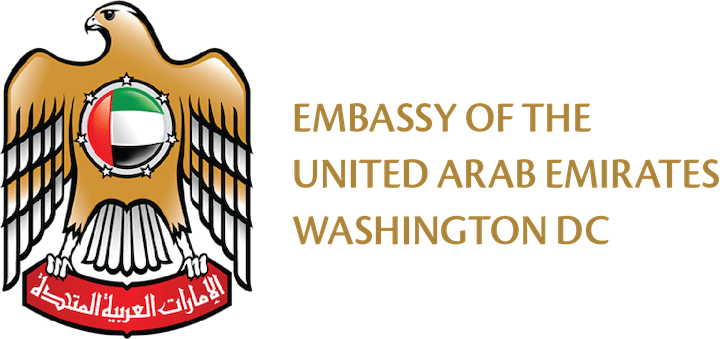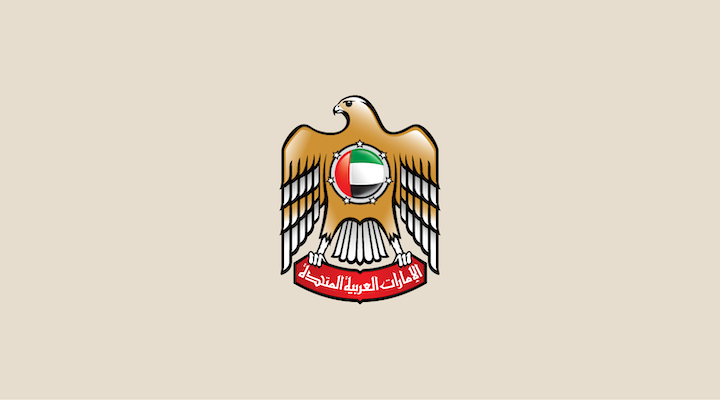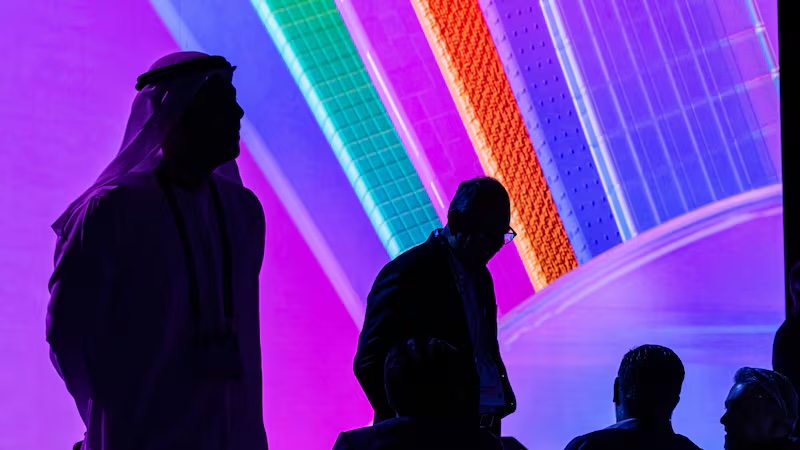Ambassador Al Otaiba Writes for Bloomberg: AI’s Future Is Being Forged by the US and the UAE
April 30, 2024
Originally published in Bloomberg Opinion [2024]. Reprinted with permission.
As oil was fortune in the last century, data is destiny in this one. The era of artificial intelligence has arrived — a transformational moment that will touch every area of modern life and international affairs.
It is also a moment that could slip through our fingers. AI is a technology that can proliferate at a speed that was unthinkable just a decade ago, far beyond the checks and boundaries of the physical world.
Commercial deals, like the one announced this month between Microsoft and Abu Dhabi’s G42, are supercharging the speed at which the next generation of AI will be deployed to deliver benefits worldwide. That agreement, which includes a $1.5 billion investment from the American software giant into the United Arab Emirates’ leading AI technology company, marks the culmination of a comprehensive strategic partnership between the two organizations that will advance regional AI solutions, develop the AI workforce and expand data-center capacity around the world.
To secure the advantages AI offers, governments must race to realize the technology’s potential — and limit its harm. Who controls the data and computing power? What rules are necessary to create fair and responsible access in both emerging and mature markets? Where is the clean energy needed to operate the data centers that are the brains and muscles of AI?
To meet these challenges, the UAE is working with the US and other partners to write a new playbook for this breakthrough technology. It involves resetting government regulations, reimagining public-private sector collaboration, and reshaping our relations in the world. And it is based on core principles that enable AI to flourish, while putting in place a regulatory framework to ensure its just and ethical use.
First, there must be more government-to-government collaboration. In the case of the UAE and the US, while we bring different perspectives to the table, we have a fundamental alignment on our vision for AI. Notably, we agree that the AI era must be more equitable. Narrowing the digital divide and giving countries more control over their data are key priorities.
As part of this, the UAE pledges to strengthen its position as a preferred source for accessible “compute” — the calculating power and speed needed to process massive amounts of data — as well as open-source models and financial support for the Global South. We are also working with the US to finalize a bilateral agreement for AI’s ethical and fair use.
This government-to-government framework will include standards for data protection, security and reliability as well as support for joint private-public sector research, education and funding. It will also create a basis for more commercial collaboration.
Second, the AI era will require significant amounts of energy to process data and manage its flow, and here we must not compromise climate priorities for technological progress.
Again, UAE and US government cooperation provides a model by promoting the use of low-carbon, renewable energy sources to run power-hungry data centers. The UAE’s digital infrastructure is powered by some of the world’s largest and lowest-cost solar arrays, an expanding civilian nuclear energy program, and a built-for-purpose, bottleneck-free electrical grid. Our homegrown renewable energy company Masdar has become one of the largest global investors in solar and wind power across the US and more than 40 countries.
Third, this new technology should be deployed in a manner that benefits society. This means applying AI’s benefits in areas such as health care, education and climate. Global policy must assure access for middle powers and the Global South.
Finally, making this transition will require capital on a scale that requires public-private collaboration. The UAE will dedicate hundreds of billions of dollars to the task.
The UAE has provided financial backing for both established technology companies and promising startups, many of them in the US. For example, Mubadala, on of our leading sovereign wealth funds, has had a 17-year investment in New York-based GlobalFoundries, helping re-energize US semiconductor manufacturing while developing UAE expertise in the sector. G42 and California’s Cerebras Systems have joined forces to build the world’s largest supercomputer for AI training.
The Microsoft-G42 deal encapsulates how this playbook can work for the private sector: By bringing together complementary players, it creates a whole that is greater than the sum of its parts.
The UAE’s AI sector is among the world’s most advanced. We appointed the world’s first AI minister in 2017; created the first dedicated AI research university in 2020; and launched Falcon, a top-rated open-source large language model last year. We have quadrupled our multinational AI workforce over the last three years.
AI will be the lifeblood of future societies. Its deep impacts are quickly upending the old rules of the game — the US and UAE will be partners at the leading edge of advanced computing technologies. But we need governments across the world to sit at the table with us if we are to harness AI’s huge potential for good. To ensure that data is truly destiny in the new age, we must join together to promote AI’s ethical and equitable benefits for all.





